Faculty
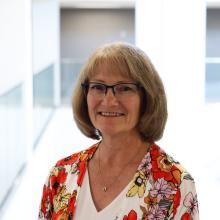
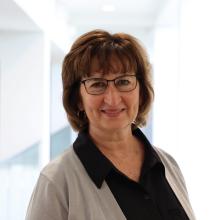
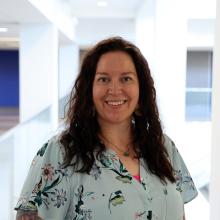
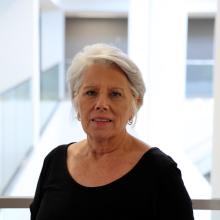
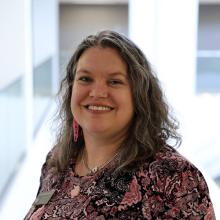
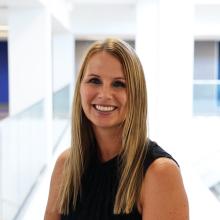
Staff
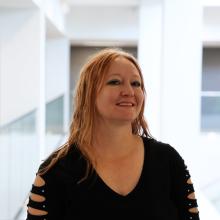
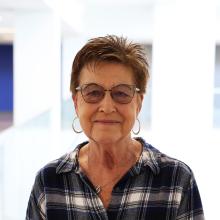
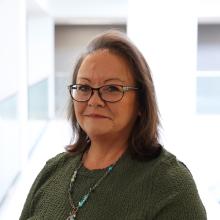
Sign up for Fall 2025 Registration Day Registration Day | Northeastern Junior College
Associate Degree Nursing (ADN) Program is a four-semester program after completing a set of prerequisite courses for a total of 67.5 credits.
Students graduate with an Associate of Applied Science in Nursing and are then eligible to take the NCLEX-RN (nursing state board exam) to become a Registered Nurse (RN). RN's are in high demand and are the largest group of health care providers in the United States. RN's have both independent and dependent functions in providing patient care to include patient assessment, implementing doctors’ orders and providing patient education.
RN's work in a variety of settings including hospitals, home care agencies, long-term care facilities, clinics, public health care agencies and schools.
The nursing program includes both instructional and clinical experience to provide safe and compassionate nursing care. The nursing faculty also strive to teach the values and professionalism nurses will need to have a rewarding career in nursing. Clinical experiences vary and may occur on weekends or nights and will include eight or twelve hour shifts in facilities from surrounding areas including Nebraska. Travel may be required up to a 200-mile radius of campus.
Applicants who desire to enter the ADN program must satisfy the following requirements for admission:
| Course Number | Course Title | Credits | Details |
|---|---|---|---|
ENG121ENG1021 |
English Composition I:GT-CO1 | 3 | |
|
Emphasizes planning, writing, and editing/revisions of compositions, coupled with development of critical and logical thinking skills. This course includes a minimum of five compositions that stress analytical, evaluative, and persuasive/argumentative writing. This is a Statewide Guaranteed Transfer course in the GT-CO1 category. Prerequisite: College Readiness in English. (3-0) |
|||
HPR108HPR1010 |
Dietary Nutrition | 1 | |
|
Studies the basic nutritional principles in clinical practice in health care. The course will cover factors which influence the nutritional status of individuals, methods of nutritional assessment and support, and diet modification for specific disease states. (1-0) |
|||
|
or |
|||
HWE100HWE1050 |
Human Nutrition | 3 | |
|
Introduces basic principles of nutrition with emphasis on personal nutrition. This course focuses on macro and micro nutrients and their effects on the functions of the human body. Special emphasis is placed on the application of wellness, disease, and lifespan as it pertains to nutrition. (3-0) |
|||
BIO201BIO2101 |
Human Anatomy & Physiology I with Lab: GT-SC1 | 4 | |
|
Focuses on an integrated study of the human body including the histology, anatomy, and physiology of each system. Examines molecular, cellular, and tissue levels of organization plus integuments, skeletal, articulations, muscular, and nervous systems. Includes a mandatory hands-on laboratory experience covering microscopy, observations, and dissection. This is the first semester of a two semester sequence. This is a Statewide Guaranteed Transfer course in the GT-SC1 category. Prerequisite: Successful completion of BIO1111 OR BIO1010 with a "C" grade or better. (3-2) |
|||
BIO202BIO2102 |
Human Anatomy & Physiology II with Lab: GT-SC1 | 4 | |
|
Focuses on the integrated study of the human body and the histology, anatomy, and physiology of the following systems and topics: endocrine, cardiovascular, hematology, lymphatic and immune, urinary, fluid and electrolyte control, digestive, nutrition, respiratory, reproductive, and development. Includes a mandatory hands-on laboratory experience involving microscopy, observations, and dissection. Prerequisite: Successful completion of BIO 2101 with a "C" grade or better. This is a Statewide Guaranteed Transfer course in the GT-SC1 category. (3-2) |
|||
PSY235PSY2440 |
Human Growth & Development: GT-SS3 | 3 | |
|
Examines human development from conception through death emphasizing physical, cognitive, emotional and psychosocial factors. This is a Statewide Guaranteed Transfer course in the GT-SS3 category. Prerequisite: College Readiness in English. (3-0) |
|||
Once all prerequisites are completed, the student must apply to the ADN program. This is a separate application than general admission to the college. The student needs to apply to the college first and be assigned an ‘S’ number. Please contact the nursing department for the specific directions on how to apply to the nursing program. Acceptance into the ADN program is a competitive process. Points are assigned based on the following: grade point average on prerequisites, satisfactory completion of science general education course, prior degree, and certification as a nurse aide, successful completion of Jump Start to Nursing course, satisfactory completion of Medical Terminology, satisfactory completion of BIO 2104 Microbiology, nursing preadmission test results, and proof of residency for one year from Northeastern’s service area. Applicants are selected on total points earned. Once accepted into the program the following must be completed.
It is highly recommended that you meet with a nursing advisor to ensure all requirements have been met.
| Course Number | Course Title | Credits | Details |
|---|---|---|---|
NUR109NUR1009 |
Fundamentals of Nursing | 6 | |
|
Examines the fundamental concepts necessary for safe, person-centered nursing care to a diverse patient population while integrating legal and ethical responsibilities. This course introduces caring, critical thinking/clinical judgment, the nursing process, quality improvement, and communication used when interacting with patients and interdisciplinary team through evidence-based nursing practice. The application of knowledge and skills occurs in the nursing skills laboratory and a variety of clinical settings providing care to stable patients with common health alterations. Prerequisite: Acceptance into ADN program. (Theory: 2cr= 30 contact hours; Lab: 2cr= 90 contact hours; Clinical: 2cr= 90 contact hours) (2-2-2) |
|||
NUR112NUR1012 |
Basic Concepts of Pharmacology | 2 | |
|
Provides an overview of the basic principles of pharmacology including major drug classifications and prototypes of commonly used medications. This course introduces central concepts including safety and quality improvement practices in the administration of medications, person centered teaching, and variations encountered when administering medications to diverse population across the lifespan. Prerequisite: Acceptance into ADN program. (Theory: 2cr= 30 contact hours) (2-0-0) |
|||
MAT103MAT1120 |
Math for Clinical Calculations | 3 | |
|
Covers the mathematical calculations needed for enteral and parenteral medication administration. It is designed for students in the health disciplines. Topics include measurements, conversion between various systems of measurements, and methods of solving problems related to drug dosage and medication administration. Prerequisite: Successful completion of MAT0250 or MAT0300 with a "C" grade or better or appropriate placement scores. (3-0) |
|||
| Course Number | Course Title | Credits | Details |
|---|---|---|---|
NUR106NUR1006 |
Medical Surgical Concepts | 7 | |
|
Builds on fundamentals and introduces basic medical surgical nursing concepts, as well as application of mental health concepts, communication, collaboration, caring, and critical thinking/clinical judgment necessary for safe, person-centered care to a developmentally and culturally diverse adult patient population. This course incorporates evidence-based practice, quality improvement, professional standards, and legal and ethical responsibilities of the nurse. The application of knowledge and skills occurs in the nursing skills laboratory and a variety of clinical settings. Prerequisite: Successful completion of first semester of the ADN program. (Theory: 3.4cr= 51 contact hours; Lab: 0.3cr= 13.5 contact hours; Clinical: 3.3cr= 148.5 contact hours) (3.4-0.3-3.3) |
|||
NUR150NUR1050 |
Maternal - Child Nursing | 6 | |
|
Provides the theory of maternal-child nursing, as well as application of mental health concepts, communication, collaboration, caring, and critical thinking/clinical judgment necessary for safe, family centered nursing care to childbearing families and children that is developmentally and culturally appropriate. This course incorporates evidence-based practice, standards of practice, quality improvement, and legal and ethical responsibilities. The application of knowledge and skills occurs in the nursing skills laboratory and in a variety of maternal/child and pediatric clinical settings. Prerequisite: Satisfactory completion of first semester of the ADN program. (Theory: 3.3cr= 49.5 contact hours; Lab: 0.7cr= 31.5 contact hours; Clinical: 2cr= 90 contact hours) (3.3-0.7-2) |
|||
BIO216BIO2116 |
Human Pathophysiology | 4 | |
|
Focuses on the alterations in physiological, cellular, biochemical processes, the associated homeostatic responses, and the manifestations of disease. Prior knowledge of cellular biology, anatomy, and physiology is essential for the study of pathophysiology. Prerequisite: Successful completion of BIO2101 with a "C" grade or better and Prerequisite or Co-requisite: BIO2102 (4-0) |
|||
| Course Number | Course Title | Credits | Details |
|---|---|---|---|
NUR169NUR1069 |
Transition Into Practical Nursing | 4 | |
|
Facilitates the transition into the role of the practical nurse with emphasis on distinguishing the defined practical nurse scope of practice related to clinical practice, communication, nursing process, ethical/legal issues, and leadership skills. The student practices in the role of the practical nurse in the associated clinical experience. Prerequisite: Satisfactory completion of the first 2 semesters of the AND program. (Theory 2cr=30 contact hours; Clinical 2cr=90 contact hours) (2-0-2) |
|||
| Course Number | Course Title | Credits | Details |
|---|---|---|---|
NUR206NUR2006 |
Advanced Concepts of Medical Surgical Nursing I | 6.5 | |
|
Builds on medical surgical nursing theory, mental health concepts, communication, collaboration, caring, and critical thinking/clinical judgment necessary for safe, patient-centered nursing care to developmentally and culturally diverse, high acuity medical surgical adult patients. The course incorporates evidence-based practice, quality improvement, professional standards, and legal and ethical responsibilities of the professional nurse. The application of knowledge and skills occurs in the nursing skills laboratory and in a variety of clinical settings. Prerequisite: Successful completion of the first year of ADN course work to include successful completion of BIO2116, MAT1120, and 3 credits of social science elective. (Theory: 3cr= 45 contact hours; Lab: 0.5cr= 22.5 contact hours; Clinical: 3cr= 135 contact hours.) (3-0.5-3) |
|||
NUR211NUR2011 |
Psychiatric-Mental Health NSG | 4 | |
|
Develops concepts of psychosocial integrity and emphasizes the function and responsibility of nursing in promoting and maintaining mental health of individuals and families. This course emphasizes communication and caring through the application of the therapeutic relationship and nursing process in the care and treatment of common psychiatric clinical conditions/disorders. Prerequisite: Successful completion of the first year of ADN course work to include successful completion of BIO2116, MAT1120, and 3 credits of Social Science elective. (Theory: 2.7 cr/40.5 contact hrs, Clinical: 1.3 cr/58.5 contact hrs.) (2.7-0-1.3) |
|||
NUR212NUR2012 |
Pharmacology II | 2 | |
|
Builds on previously introduced pharmacological concepts and applies that learning to pharmacologic therapy to provide safe, quality, evidence-based nursing care to patients with complex healthcare needs. Focuses on safety and quality improvement factors in the administration of medications within a variety of healthcare systems. Advanced dosage calculations included. Prerequisite: Successful completion of the first year of ADN course work to include successful completion of BIO2116, MAT1120, and 3 credits of Social Science elective. (Theory 2cr= 30 contact hours.) (2-0-0) |
|||
| Course Number | Course Title | Credits | Details |
|---|---|---|---|
NUR216NUR2016 |
Advanced Concepts of Medical Surgical Nursing II | 5 | |
|
Continues to build on medical surgical nursing theory, mental health concepts, communication, collaboration, caring, and critical thinking/clinical judgment necessary for safe, patient centered nursing care to developmentally and culturally diverse adult patients experiencing high acuity medical/surgical conditions. This course incorporates evidence-based practice, quality improvement, professional standards, and legal and ethical responsibilities of the professional nurse in high acuity settings. The application of knowledge and skills occurs in a variety of clinical settings. Prerequisite: Successful completion of the third semester of the ADN course work. (Theory: 2.3cr= 34.5 contact hours; Clinical: 2.7cr= 121.5 contact hours.) (2.3-0-2.7) |
|||
NUR230NUR2030 |
Transition to Professional NSG | 4 | |
|
Provides an integrative experience applying all dimensions of the professional nurse when caring for diverse patient populations across a variety of healthcare settings. All major concepts of the nursing program are addressed in this seminar and practice capstone course. Leadership and the management of multiple patients are emphasized. The application of knowledge and skills occurs in the clinical setting to facilitate an effective transition from student to registered professional nurse Prerequisite: Successful completion of the third semester of the ADN course work. (Theory: 1.6cr= 24 contact hours; Clinical: 2.4cr= 108 contact hours.) (1.6-0-2.4) |
|||








